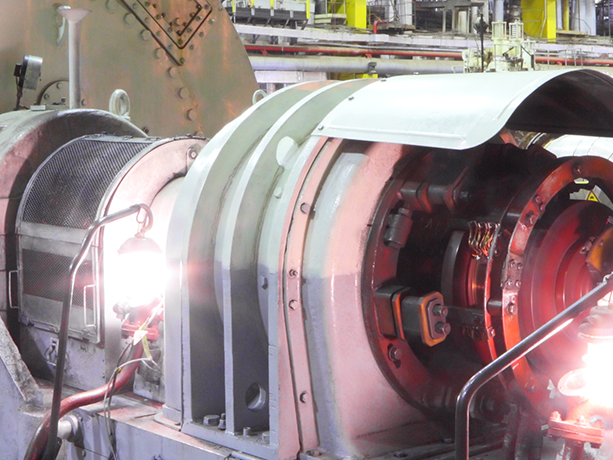First coined in the 1960s as a term, tribology has become a comprehensive and in-depth field that encompasses the science of friction, wear and lubrication and has found applications in multiple industries including marine, power generation (including wind energy), wastewater, manufacturing, rail and aviation.
Here at Brookes Bell, our tribology experience has been honed during the course of over 800 assignments for clients large and small - spanning SMEs to multinationals.
Our tribologists are specialist mechanical engineers and have both theoretical and practical experience of engineering tribology, investigating machinery failures and design issues in a wide range of contexts.
What is tribology?
First emerging in the mid-1960s, tribology is the scientific and engineering study of the interaction of surfaces in motion. The subject has sometimes been referred to as the science of friction, lubrication and wear. This however is a very restrictive description.
Nearly all machinery involves tribology. In an engine for example, the bearings, gears, seals, pistons, piston rings, crossheads, cams and followers are all key tribological components. In a crane, the slewing ring, the lifting and luffing mechanisms, and even the wire ropes and pulleys are aspects that can suffer from friction, wear and lubrication problems. Even fixed parts of machinery can suffer from fretting, which is a micro-scale movement involving tribology.
These mechanical components are frequently the locations of a machine system where failures and damage occur. The reason for this is that in normal operation, the friction and heat generation in these components is very low, but when something disrupts normal operating conditions, friction and heat generation rise rapidly, leading to premature wear out or sudden failures.
Our expertise lies in the detail understanding of how the various components and systems function. Thus when failures or problems occur, we can not only determine the mode of failure, we can also diagnose the root causes, and recommend ways to prevent recurrence, sometimes including design changes.
Brookes Bell: a multidisciplinary approach to tribology
At Brookes Bell, we take a multidisciplinary approach to tribology, drawing upon the experience and expertise of our specialists from a broad range of disciplines.
Master Mariners, marine engineers, cargo scientists, fuel chemists, metallurgists, leading experts in all of these disciplines and more are able to provide input and insight into our mechanical engineering investigations - providing significant added value to your investment.
Speak to an expert tribologist today
If you have an issue related to friction, wear or lubrication that you’d like to discuss, then speak to Brookes Bell today for a free, no-obligation consultation.

